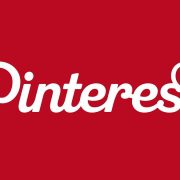Veritasium Creator Derek Muller Says Facebook Advertising Is Broken
 Do any reading about online marketing, and you will almost certainly be told how important social media is to your brand’s online presence. A great social media presence has repeatedly been shown to increase organic traffic and brand perception, but as the platforms have become more populated and competitive, there has been a large shift towards a pay-to-play business model.
Do any reading about online marketing, and you will almost certainly be told how important social media is to your brand’s online presence. A great social media presence has repeatedly been shown to increase organic traffic and brand perception, but as the platforms have become more populated and competitive, there has been a large shift towards a pay-to-play business model.
Facebook is most notable for this, as they have been the largest social media platform a significant time and they have made the largest changes towards monetizing their service. Sure a business can put up a page and do the slow grind to gain followers one or two at a time through great content and engagement with their audience, but brands looking for significant visibility on the site only have a few options and they all cost money.
To get any exposure on the largest social media platform, brands have to acquire likes for their pages. There are two ways to do this. Despite being expressly against Facebook’s terms of conditions, there is still a market for people who are willing to outright pay for likes.
As Derek Muller explains, these paid likes come from “click farms” in developing countries, where people are paid to like pages by the thousands. But, they are fairly easily identifiable and can get profile owners in trouble.
Alternatively, Facebook offers advertising for your page specifically aimed at increasingly likes “organically”. The problem is, these likes don’t appear to be much different from the likes you would purchase from a click farm.
Derek Muller used his Veritasium YouTube channel to show that Facebook’s way of acquiring “legitimate” likes is actually almost identical to the click farm methods, and both are equally useless. But, paying Facebook for it might actually cost you more.
You see, Veritasium used a free Facebook advertising offer to see if it might expand their social media audience. Within hours, they had netted nearly three times the number of followers, but over time Muller noticed the engagement on Veritasium’s content hadn’t improved with the new likes. In fact, it seemed to go down.
After some research, Muller discovered the bulk of his new likes came from the same countries notorious for click farms. The “users” liking his page had also liked thousands of other pages with seemingly no logical pattern. But, there was no going back. There is no way to delete these empty likes in bulk.
If that was all the only issue, it would be a moderate annoyance and newsworthy hole in Facebook’s advertising method. But, it manages to get worse. These fake likers don’t just provide an inflated picture of how many people appreciate what you are putting out. They actually hold you back.
When you share something on Facebook, it is only shown to a small sample of your followers. Depending on how those viewers respond, Facebook might then distribute your content to even more people. But, if your content isn’t getting liked, shared, or commented on, it will usually sink out of visibility very quickly.
If you have a ton of empty likers, they make up a significant number of those seeing the initial distribution of your content. Since these profiles don’t actually engage in any meaningful way, they can actually prevent interested followers from seeing any of your content. You might as well be speaking to a comatose audience, while your actual fans wait just outside the door.
There is a solution, but of course that costs you even more. To get your content shown to the parts of your followers that are actually interested you have to pay to have your content targeted to them in ads. Facebook makes money twice off of you, and you gain very little in the long run.
Facebook has yet to comment on the issue, but these raise some big questions about the social media platform’s advertising methods as a whole. While social media can still be a great tool for those looking to grow their brands, you might look towards other sites such as Twitter. Until Facebook addresses these massive issues in their service, advertising on their platform may not be worth your resources.






Leave a Reply
Want to join the discussion?Feel free to contribute!